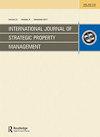规避危险:房地产危机影响框架
IF 1.7
4区 管理学
Q3 MANAGEMENT
International Journal of Strategic Property Management
Pub Date : 2023-12-07
DOI:10.3846/ijspm.2023.20444
引用次数: 0
摘要
随着城市化进程的不断推进,房地产在危机管理中变得越来越重要。危机研究领域仍然是碎片化的,特别是在RE背景下,侧重于对单一危机事件的回顾性分析。这篇定性的、基于未来研究的论文旨在对不同危机如何影响可再生能源建立一个更全面、更有远见的理解。它从社会角度确定了128个可能的未来危机,并采用了该领域的一种新方法——未来之轮(futures Wheel),通过58个多学科研讨会收集179名实践和学术专家的观点,以分析已确定的危机的影响。从这一分析中出现了房地产危机影响框架,其中包括23个影响主题,这些主题综合了对可再生能源硬要素(例如材料的物理状况)和软要素(例如经济价值变化)的各种直接和间接危机影响。本研究为现有的研究文献提供了一个综合的、前瞻性的视角。该框架可以帮助可再生能源市场参与者在危机影响显现之前、期间和之后准备和评估可再生能源的关键要素,并可以帮助空间规划者、投资者和可再生能源管理者以更多维的方式反思其脆弱性和危机准备。本文章由计算机程序翻译,如有差异,请以英文原文为准。
EVADING DANGER: THE CRISIS IMPACT FRAMEWORK FOR REAL ESTATE
With continuing urbanisation, real estate (RE) has become increasingly important in crisis management. The field of crisis research is still fragmented, especially in the RE context and focuses on the retrospective analysis of single crisis events. This qualitative, futures studies–based paper aims to build a more holistic, foresight-driven understanding of how diverse crises affect RE. It identifies 128 possible future crises from a societal perspective and adopts a novel method in the field, the Futures Wheel, to collect the views of 179 practicing and academic experts via 58 multidisciplinary workshops to analyse the impacts of the identified crises. From this analysis emerged the Crisis Impact Framework for Real Estate, which includes 23 impact themes that synthesise the variety of direct and indirect crisis impacts on RE’s hard elements (e.g. the physical condition of materials) and soft elements (e.g. economic value changes). This study contributes an integrated and foresight-driven perspective to the existing research literature. The framework can assist RE market participants in preparing and assessing critical elements of RE before, during and after crisis impacts have manifested and can help spatial planners, investors and RE managers to reflect in a more multidimensional manner on their vulnerabilities and crisis preparedness.
求助全文
通过发布文献求助,成功后即可免费获取论文全文。
去求助
来源期刊
CiteScore
4.00
自引率
18.50%
发文量
23
审稿时长
15 weeks
期刊介绍:
International Journal of Strategic Property Management is a peer-reviewed, interdisciplinary journal which publishes original research papers. The journal provides a forum for discussion and debate relating to all areas of strategic property management. Topics include, but are not limited to, the following: asset management, facilities management, property policy, budgeting and financial controls, enhancing residential property value, marketing and leasing, risk management, real estate valuation and investment, innovations in residential management, housing finance, sustainability and housing development, applications, etc.

 求助内容:
求助内容: 应助结果提醒方式:
应助结果提醒方式:


